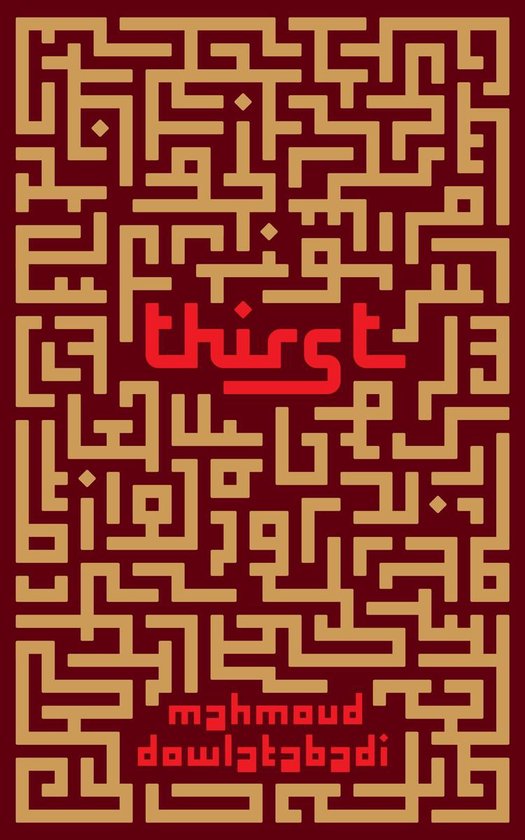
Thirst
"Dowlatabadi draws a detailed, realist picture of Iranian life . . . in language that is complex and lyrical." —The Financial Times
In the midst of the Iran–Iraq War, an Iraqi journalist is given a tour of a military prison. The Major in charge of the camp informs the writer of what is expected: he is to write a fabricated report about a murder that has occurred in the camp, with the aim of demoralizing Iranian soldiers.
Reluctant to write the report, the writer spends a long night talking and drinking with the Major and detailing a work of fiction he is composing about a group of soldiers trapped on a hill, dying of thirst as they battle for a water tank with a group of enemy soldiers perched on the opposite hill. The tank remains undamaged, but neither group has a hope of reaching it without being killed.
In a narrative riddled with surreal images, shifting perspectives, and dark humor, Mahmoud Dowlatabadi—widely acknowledged as the most important living Iranian writer—offers a kaleidoscopic portrait of the warring countries as he questions the meaning of national identity and does something that has been nearly impossible to do in Iran for the last century: tell a true story.
In the midst of the Iran–Iraq War, an Iraqi journalist is given a tour of a military prison. The Major in charge of the camp informs the writer of what is expected: he is to write a fabricated report about a murder that has occurred in the camp, with the aim of demoralizing Iranian soldiers.
Reluctant to write the report, the writer spends a long night talking and drinking with the Major and detailing a work of fiction he is composing about a group of soldiers trapped on a hill, dying of thirst as they battle for a water tank with a group of enemy soldiers perched on the opposite hill. The tank remains undamaged, but neither group has a hope of reaching it without being killed.
In a narrative riddled with surreal images, shifting perspectives, and dark humor, Mahmoud Dowlatabadi—widely acknowledged as the most important living Iranian writer—offers a kaleidoscopic portrait of the warring countries as he questions the meaning of national identity and does something that has been nearly impossible to do in Iran for the last century: tell a true story.
| Auteur | | Mahmoud Dowlatabadi |
| Taal | | Engels |
| Type | | Paperback |
| Categorie | | Literatuur & Romans |